10 brilliant but underrated 90s movies
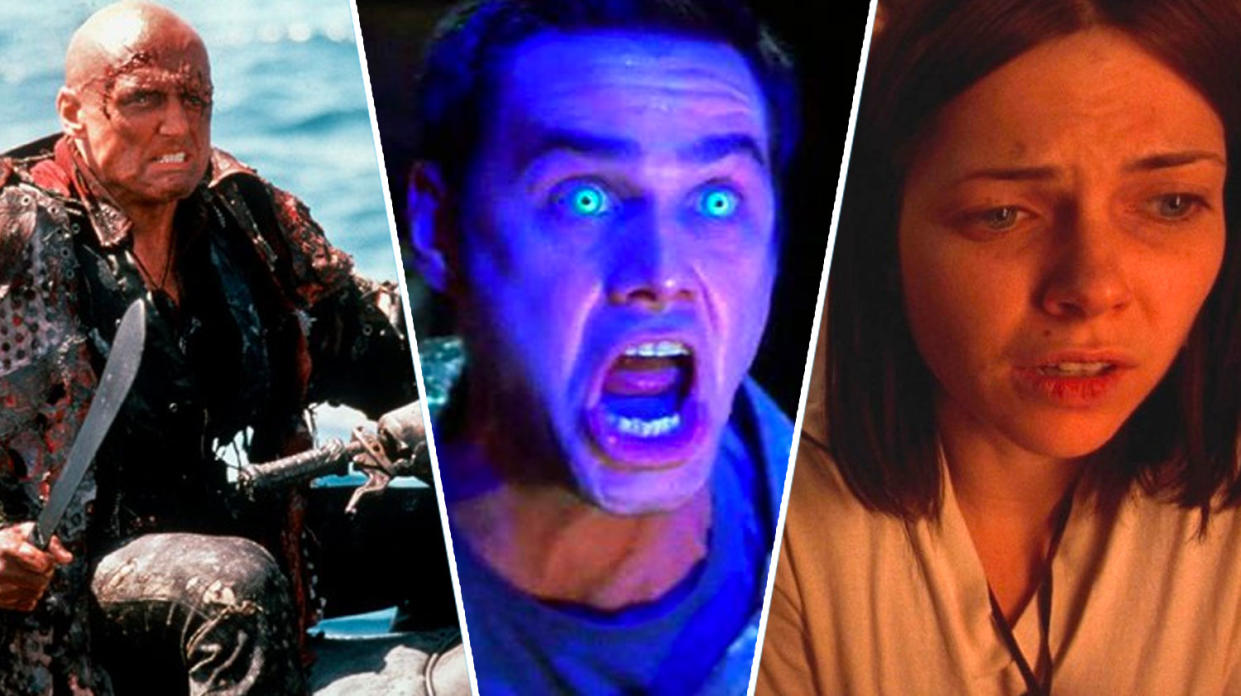
This week sees the release of the 1990s-set Captain Marvel. The film makes the absolute most of its period setting, with gags about CD-Roms, Blockbuster Video, and dial-up internet all present and correct. There was a lot going on in cinemas in the 90s too – Aliens! Dinosaurs! Loads of Arnie movies! – so much so you’d be forgiven for missing out on some of the less spectacular movies.
These 10 films might not have set the world on fire – hell, some of them straight-up belly-flopped – but time has been kind to these underrated 90s classics.
Demolition Man (1993)
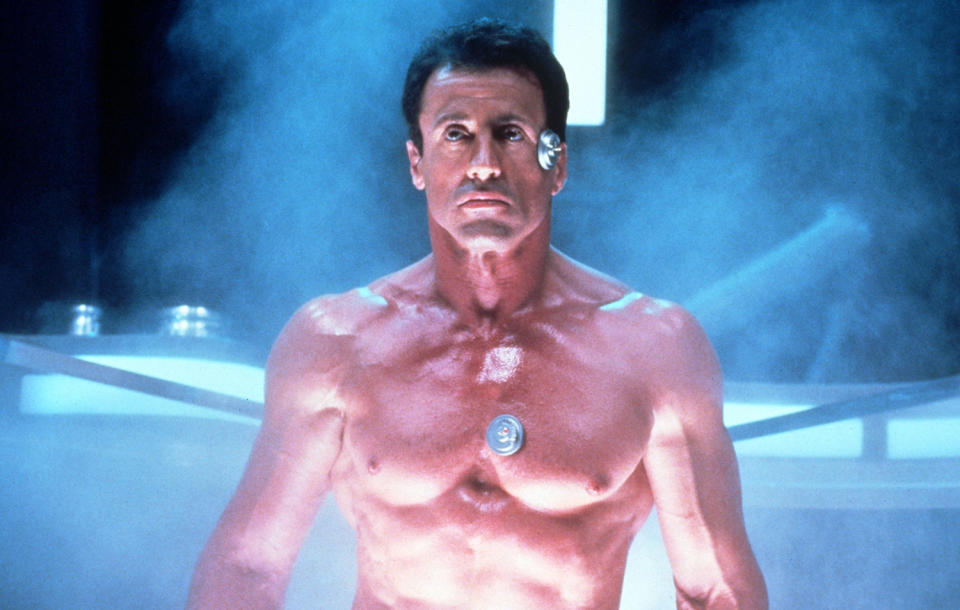
Fittingly, for a movie about a cryogenically frozen cop thawed out in a future with which he’s hopelessly out of step, Demolition Man itself feels like a relic – an ancient artefact from a bygone age. The movie, one of Stallone’s last decent action outings before Judge Dredd sentenced him to career jail, was released in the nineties sweet spot: before cheap CG made action sequences easy, but just before the decline in the public’s desire for old-school, high-octane action.
Read more: 42 films to see before you die
This was an era where, if you wanted to blow up a building, you had to blow it up for real. Demolition Man is also one of the smartest of Sly’s ‘dumb’ movies, with an irresistible high-concept pitch – cro-magnon cop joins namby-pampy future police force – to go with its belt-and-braces action. Still a total blast.
The Game (1997)
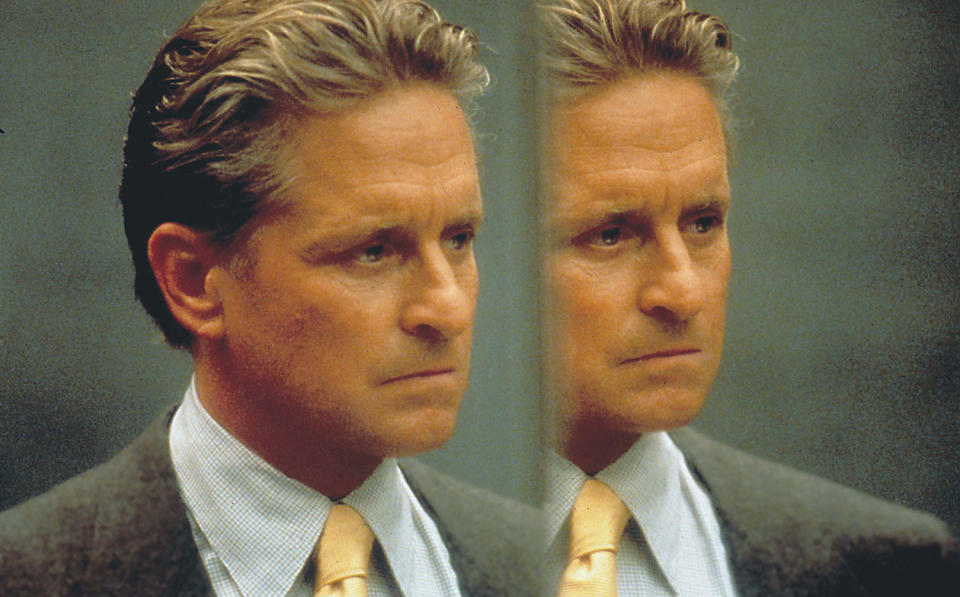
Think Fincher, think the 90s, you think Alien 3, you think Se7en, you think Fight Club. Nobody has posters of The Game on their wall, or quotes from The Game on their Facebook page. It is undoubtedly one of David Fincher’s less famous efforts, but compared to every other psychological thriller out there, The Game is set and match ahead of the competition. The whole labyrinthine mess is built on a tangled logic, where the truth is a lie: are the horrible events happening to Michael Douglas’ rich playboy all part of the ‘Consumer Recreation Service’ he’s been signed up to, or is he finally reaping what he sowed? To Fincher’s credit, what could have been a binary affair keeps you guessing until the very end with a series of impressive curveballs and dead ends. Secret Cinema organisers, look no further for your next live cinematic event. The Game is on…
Cube (1997)
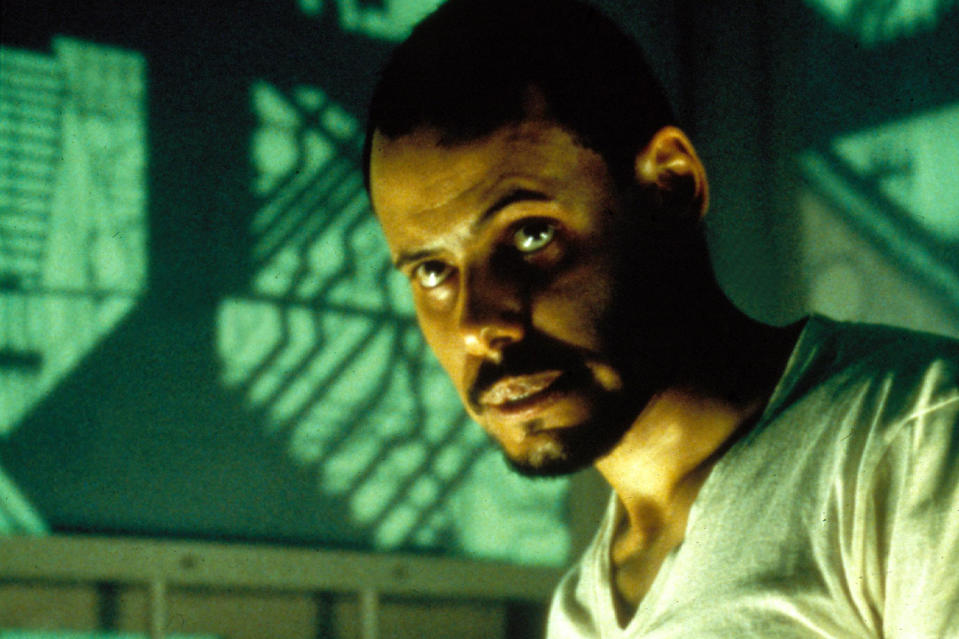
How has this not been rebooted yet? Cube is a devilishly simple but fiendishly complex action-horror-puzzle movie, with a videogame-like structure, a fantastic conundrum at its core and the constant promise of gore behind each door. The set-up is simple: six strangers wake up in a large cube, with each wall and surface containing a door to another cubed-room with six more doors. Occasionally, a room will contain a deadly trap: lasers or spikes or guillotines.
Read more: The best horror films on Netflix
Nobody knows how they got there, nobody knows how to get out. Game on. It’s a riddle that starts from the middle and works its way out, with a varied cast of characters that keep you just invested enough to want them to survive. If you’re having trouble picturing it, imagine ITV’s gameshow The Cube, then remove Phillip Schofield, then remove everything Phillip Schofield represents, and you have Cube.
Pi (1998)

Requiem For A Dream would become Darren Aronofsky’s calling card in 2000, but his debut movie is a much tighter and more focused distillation of what the director is really all about: big questions viewed through a very weird lens. Filmed in black and white – so you KNOW it’s indie LEGIT – Pi sees a mathematician develop a supercomputer which discovers a 216-digit number that could potentially hold the key to the secrets of life, the universe and everything… including the stock markets. With humour so jet black it’d make even the Coens blanche and a beguiling mix of gut-churning psychological horror and heady theological drama, Pi is fiercely unique and unforgettably vivid. Seek it out.
Swingers (1996)
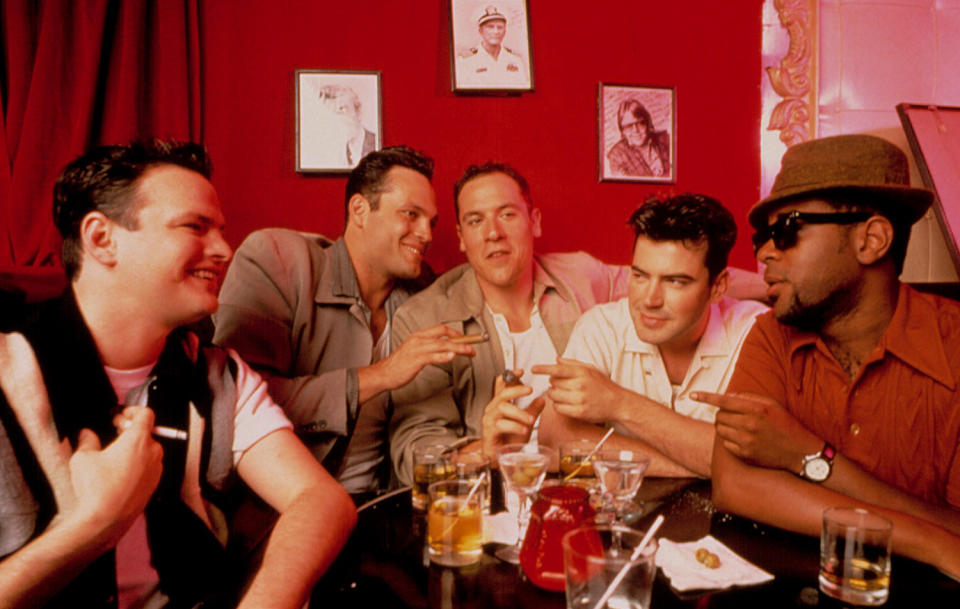
Despite introducing not one but two popular phrases into the modern lexicon – the exclamation “Vegas, baby!” and the use of the word ‘money’ as an adjective – Swingers does not not get nearly as much credit as it deserves. You could feasibly mark it up as a ‘guy comedy’ – you know the sort: bros before hos, hittin’ it up on the town, drinkin’ cocktails, droppin’ their ‘g’s – but beneath the surface it’s actually about the fragility of masculinity; about how sometimes a good old mope can be more preferable to a night of male company; about how nice guys don’t always finish last. Director Doug Liman and writer/star Jon Favreau shot it quick and nasty, guerrilla-style, but the heart and soul of the movie still rings true after 20 years.
Happiness (1998)

Warning: this movie is dangerous depressing. This writer once chose Todd Solondz’s ensemble drama Happiness as his pick for a weekly ‘film club’ with mates and was never allowed to choose the movie again. Solondz is not someone to sugarcoat the American Dream; here he twists it into a nightmare, focusing on a series of relationships so inherently doomed, and featuring people so desperately flawed, you quickly realise the film’s title is sarcastic.
Read more: What happened to the Bill & Ted cast?
Happiness’s sad little centre is Philip Seymour Hoffman’s Allen, an overweight loser with paedophilic tendencies and murderous fantasies – it’s a masterpiece of unsympathetic acting and Solondz, as is his wont, pulls no punches. See, film club? I am totally vindicated.
The Last Broadcast (1998)
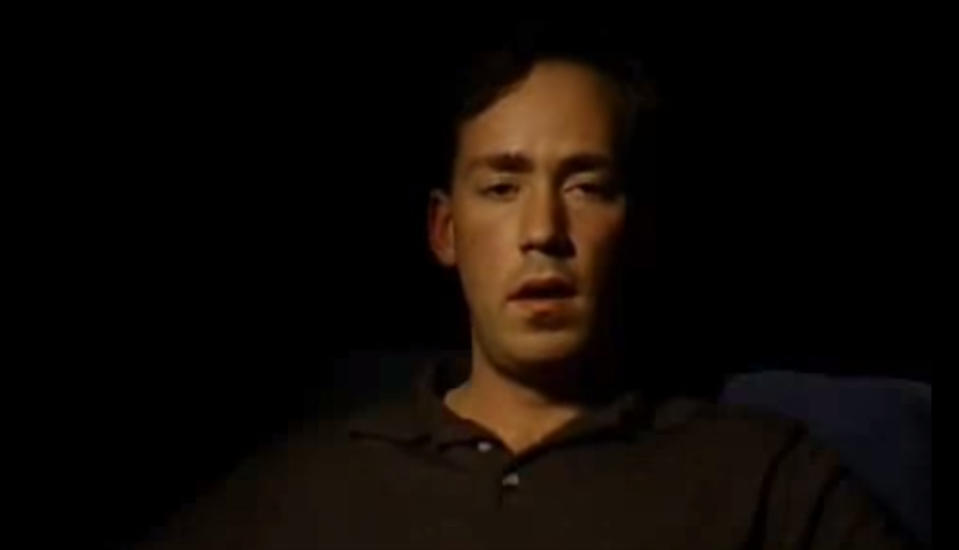
The Blair Witch Project took all the glory – and later, all the blame – for the ‘found footage’ phenomenon, but in actual fact, The Last Broadcast beat it to the punch by a year. The story is similar; it too features three filmmakers who venture out into the woods in search of a local bogeyman – in this instance, the ‘Jersey Devil’ – and amateur camera footage of their deaths is all that’s retrieved. But where Blair Witch’s trump card was its ramshackle nature – the feeling that you were actually in that tent, being molested by spirits – The Last Broadcast is driven by a whodunit mystery, and one that ends with a worthy twist at that. The tech has dated a little butThe Last Broadcast still contains the power to shock.
Waterworld (1995)
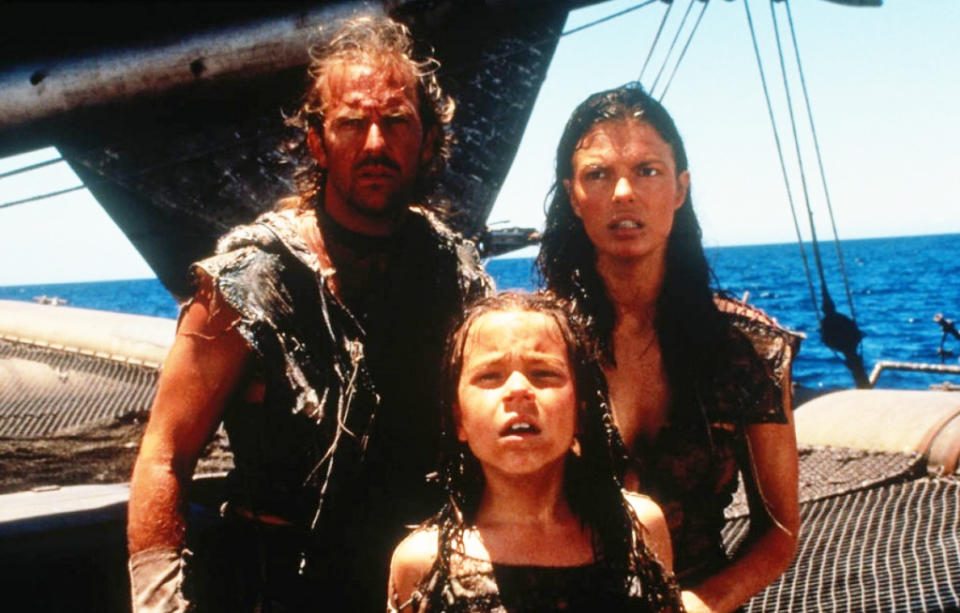
Movies like Waterworld just don’t get made any more, and that’s not because it lost more money than Barclays shares after Brexit – it’s because it was the very epitome of risk. Pre-dating James Cameron’s Titanic by a couple of years but falling short of its box-office total by a few billion dollars, Waterworld was an epic in the truest sense of the word: shot on real water, with all the logistical complications that come with that territory, it was labelled a damp squib upon release but time has been kind to Kevin Costner’s folly. It’s easy to see it as a once-in-a-decade singular vision of an apocalyptic wasteland – easily the aquatic equivalent of Mad Max: Fury Road. Mock its hippy-dippy, tree-hugging sentimentality if you must, but a movie like this takes balls the size of buoys to pull off.
The Cable Guy (1996)
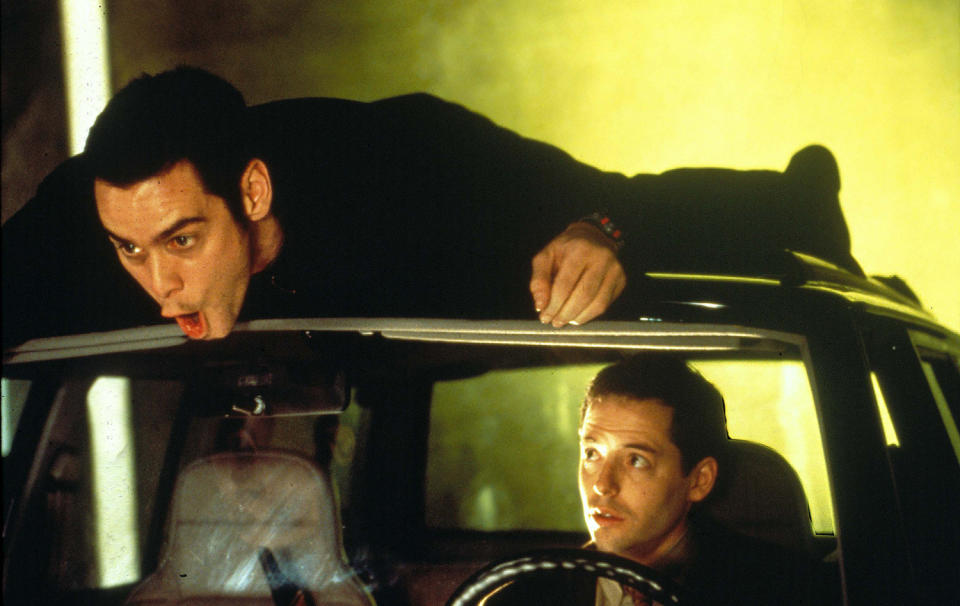
It only took Jim Carrey two years to make his first ‘flop’ – although the perceived failure of The Cable Guy probably had more to do with Carrey’s reported $20 million payday than it did the content of the movie. A black comedy tonally at odds with Carrey’s hyper-colour output thus far, The Cable Guy eschewed the broad yuks of Ace Ventura: Pet Detective and Dumb & Dumber for something much darker and way more meaningful: an exploration on how an undistilled diet of television can turn a man into a monster.
Read more: Sequels that were canned during development
Reminder: this was made in 1996 – back when we only had four terrestrial channels in the UK – so it’s fair to say it was ahead of its time. The screaming psychopaths you find on today’s reality TV shows are proof of that.
Go (1999)
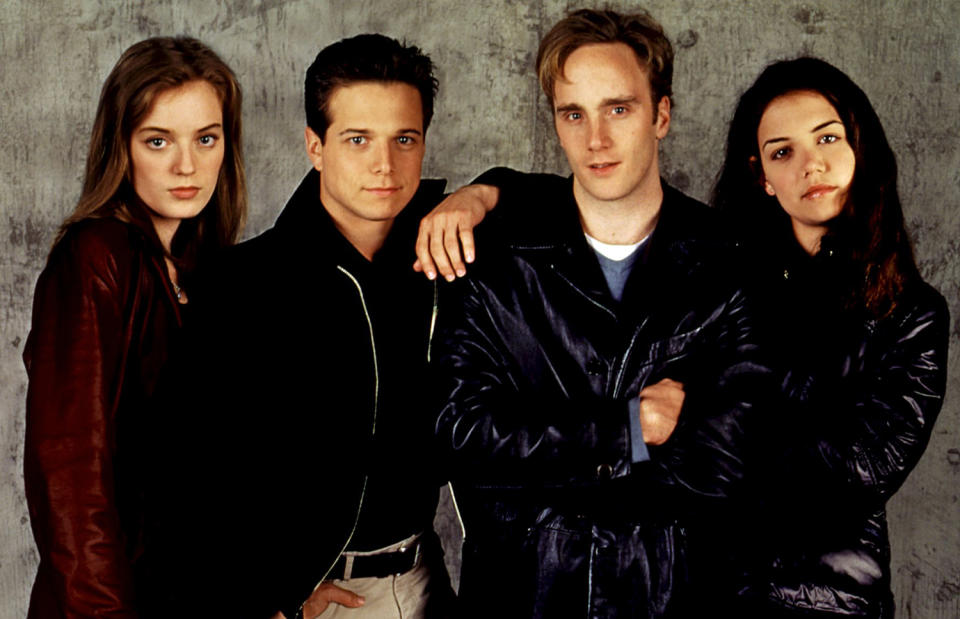
Another Doug Liman joint – with his two entries on this list, and his almost total ex-communication from the Bourne franchise thanks to the later efforts of Paul Greengrass, Liman could be the most underrated director in Hollywood. The fractured, multi-narrative screenplay from John August, following a drug deal gone wrong from three different viewpoints, could only have been green-lit after Quentin Tarantino made it hip, but Go is its own beast: ice cool thanks to brilliant turns from a young Sarah Polley and a pre-Deadwood Timothy Olyphant and with a fine line in wit (“If you were any less black, you would be clear”), it’s one of the few post-Pulp Fiction chrono-splicers worth your time.

 Yahoo Movies
Yahoo Movies 
